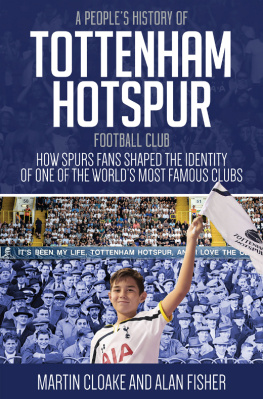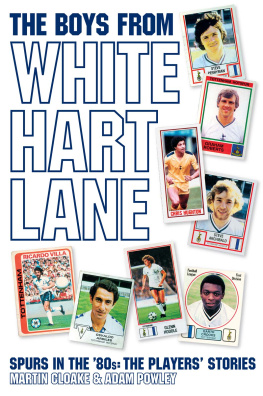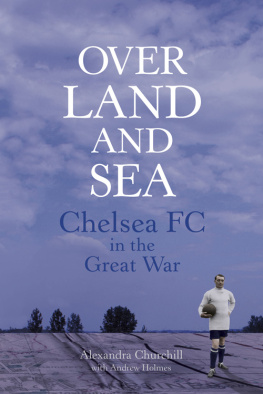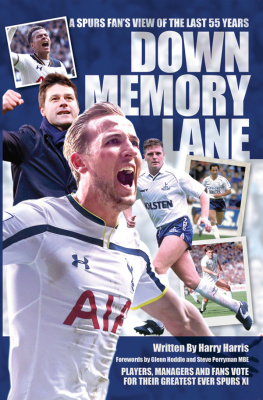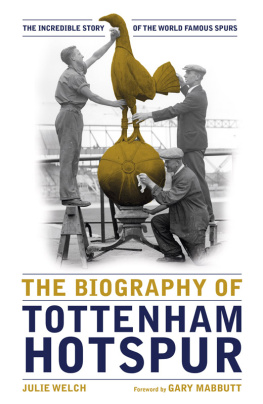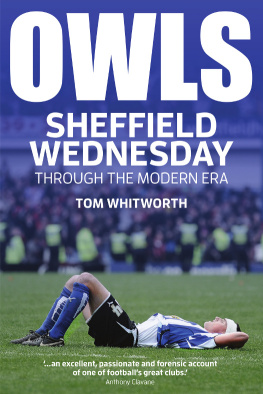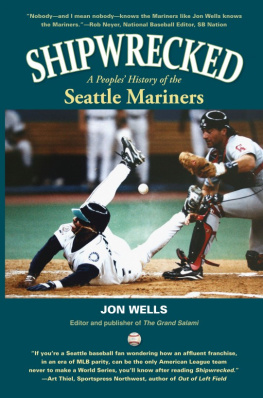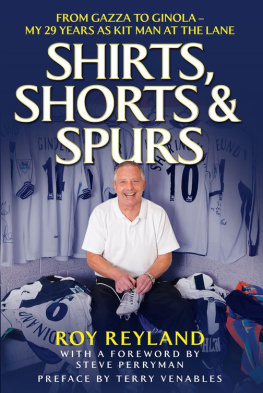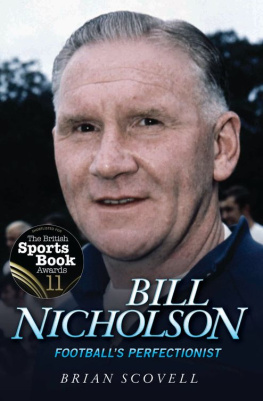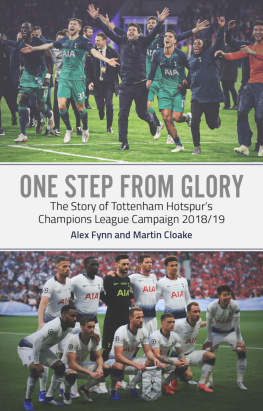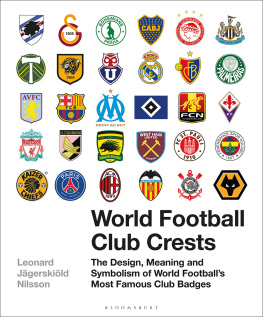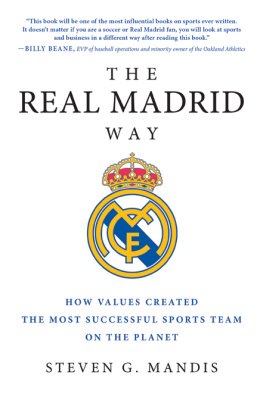First published by Pitch Publishing, 2016
Pitch Publishing
A2 Yeoman Gate
Yeoman Way
Durrington
BN13 3QZ
www.pitchpublishing.co.uk
Martin Cloake and Alan Fisher, 2016
All rights reserved under International and Pan-American Copyright Conventions. By payment of the required fees, you have been granted the non-exclusive, non-transferable right to access and read the text of this e-book on-screen. No part of this text may be reproduced, transmitted, downloaded, decompiled, reverse-engineered, or stored in or introduced into any information storage and retrieval system, in any form or by any means, whether electronic or mechanical, now known or hereinafter invented, without the express written permission of the Publisher.
A CIP catalogue record is available for this book from the British Library
Print ISBN 978-1-78531-188-8
eBook ISBN 978-1-78531-246-5
--
Ebook Conversion by www.eBookPartnership.com
Contents
Acknowledgements
M ANY people over many years have influenced our approach to this book and helped shape our thoughts. The fans who gave up their time are all named as this peoples history unfolds, but there are many more who we have met over the years who have influenced what weve produced but who are not named. Any omissions are purely down to the passage of time and the number of people weve met.
Producing a book such as this requires not only effort by the authors, but help from a large number of people. Wed like to thank Adam Powley, Katrina Law, Stuart Mutler, John Williams, Flav Bateman, Julie Welch, Mark Damazer, Andrea Warman, Simon Schama, Rob White, Tom Fisher, Paul Irons, Charles Atterton, Dan and Chris Whymark, readers of Tottenham On My Mind. At Pitch Publishing, Paul and Jane Camillin have provided vital support and a belief that this book could happen. Thanks also to Duncan Olner and Dean Rockett.
Finally, thanks to our families, friends and fellow fans who put up with us while we were writing this.
Foreword
I CAN place, with almost frightening accuracy, the exact moment I became a Spurs fan.
It was Saturday, 6 May 1961, a few days before my eighth birthday, the day Spurs won the Double. To be honest, I knew a bit, but not all that much about football, or Spurs, for that matter until then but I knew they had done something very special because the man on the telly said they had become the first team in the 20th century to win the league and the FA Cup in the same season.
Even my dad, who was more into boxing than football but was watching the cup final with me, was impressed, and told me that this was something that Arsenal, who, he assured me, were Spurs biggest rivals, had never done, and somehow, dont ask me why now, that just clinched it. The seed was sown and its been nurtured for more than half a century. Of course, not yet being eight, I had no idea what I had let myself in for but there has never been a seconds regret that this is my club.
Ask any Spurs fan what being a Spurs fan means to them and this is, more or less, the answer: I love it, I love the way we play, I loved Jimmy Greaves, Dave Mackay, Glenn Hoddle, Ossie, Ricky, Gazza, Bale. I love Harry Kane and Dele Alli right now, but its been agony, its been heart-breaking, so many false dawns, some days of glory, but years of envy, of frustration, of finishing behind Arsenal, never winning at the Bridge. But we are Spurs, itll be alright, its all about the glory, we are special. Or as my mate, the world-weary Chris says, Its a hideous addiction. So much frustration. But, as he also admits: It could have been a lot worse, we could have ended up supporting Rochdale, no slight intended, but you know what I mean.
We do indeed and in writing this book, Martin and Alan have set out to find exactly what it does mean to support Spurs and how that has shaped the club by talking to fans across the generations to bring together this Peoples History of Tottenham Hotspur Football Club.
I first went to White Hart Lane in August 1964 (2-0 v Sheffield United, Greaves and Saul), and have since seen almost 800 matches there and I am going to miss the old place when its gone, but at the same time cant wait to see the new stadium completed.
Ive sat or stood with Neil, Louis, Shaun, Ryan, Nuts, Ken, Martyn, Kevin, Jimmy, Richard, William, Siobhan, Hannah, Melissa, Andy, Alex, Steve, Eddie, Simon, Chris, Gill, Andrew and all the others: Upper and Lower, East and West, Park Lane and Paxton, and even played there once in 2002 for a press team, despite doing my hammy in the warm-up. I was on crutches for a month afterwards but Ive still got the turf that I scraped off my boots in a sealed jar at home.
I was there the April day we beat Arsenal 5-0, the night we beat Anderlecht on penalties, the 9-0 v Bristol Rovers, the 9-1 v Wigan, the night Maradona and Hoddle did their party tricks in Ossies testimonial and the day Hoddle scored his last goal against Oxford.
A hideous addiction? No, more of a lifelong love affair. Read the stories from the fans in these pages. Youll know exactly what I mean.
Mike Collett
Lifelong Spurs fan, Football Editor of Reuters
the international news agency, and author of the
Complete Record of the FA Cup
Introduction
W HEN Tottenham Hotspur announced an interest in moving from Tottenham to Stratford in 2010, it seemed a very modern football development. At Stratford was the Olympic Stadium, new, well-connected to the transport system, helpfully funded by the taxpayer. Tottenham was down at heel and badly connected and White Hart Lane was falling behind rival stadiums able to generate significantly more money every matchday.
Of course, there were objections but werent there always? Football fans are very fond of citing tradition, but in a world of competing global brands, what did a few miles across the same city matter? Success is everything, and the days of achieving success through the strength of local support or the machinations of a clever manager were long gone. Now, success comes from money, so making as much money as possible increases the chances of success. Tottenham Hotspur, Stratford Hotspur, Schmotspur Hotspur the harsh realities of modern football meant that hard heads, not bleeding hearts, were needed.
But Tottenham Hotspur never did go to Stratford. There are some, very well-connected, people who insist the club never intended to go it was just a negotiating ploy to get Haringey Council to roll over. Others say that, even if it was originally a ploy, Spurs would have jumped at Stratford if it had been offered. And, of course, it was entirely possible that the story was as it appeared on the surface that the board of Tottenham Hotspur saw a move to Stratford as the future. The truth, until the clubs chairman Daniel Levy decides to write his life story, will never be known. But the whole affair revealed something remarkable.
Despite all of footballs efforts to present its top teams as global brands, to break with the past and instead submit to a future in which the measure of your support will be defined only in proportion to your willingness to consume the product, a significant number of Tottenham Hotspur fans said their team was more than just a brand. As they campaigned noisily they talked of community and identity. And perhaps more remarkable still, people who lived and worked near the ground but were rarely seen inside it also spoke of community and identity as they joined those urging the club to stay in the area it had been in for over 150 years.

